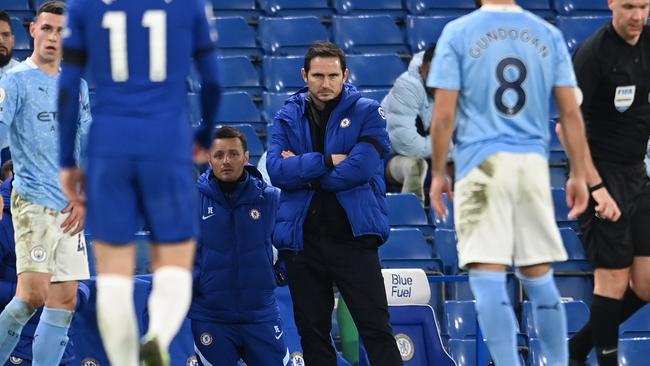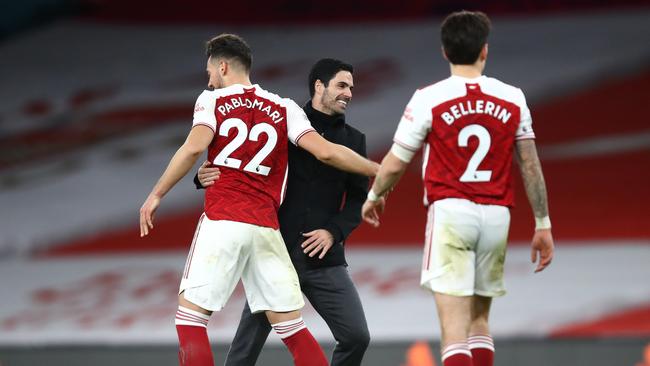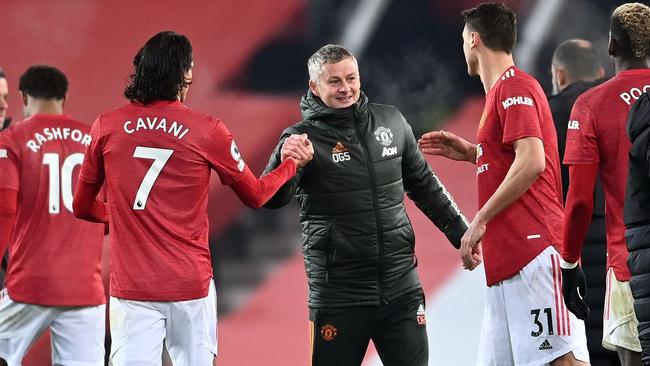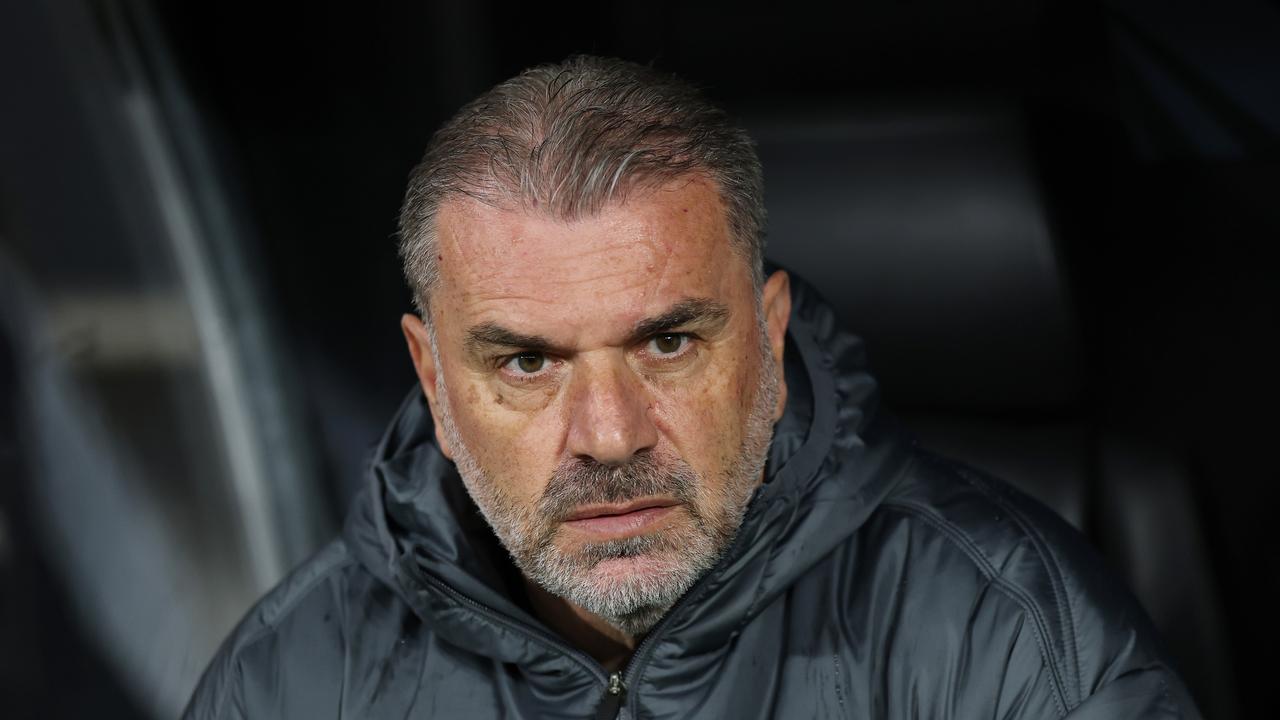Don’t be quick to write off natural-born winners
The Premier League’s stable of young gun managers deserve scrutiny but don’t be too quick to put them in the stocks.

Scarcely three weeks ago Frank Lampard headed to Goodison Park with his attacking Chelsea side two points off the top of the Premier League after a 17-game unbeaten run, including eight wins and two draws in their previous ten in all competitions. Lampard was keeping the blue flag flying very high, with Chelsea very much in the title race and having qualified for the round of 16 in the Champions League. The Chelsea head coach ignored all the gushing headlines.
His team arrived at Everton on December 12 with the second-best defence in the Premier League (after Tottenham Hotspur) and proving the most potent side at set pieces, bringing more plaudits for the work Lampard was doing in preparation at their Cobham training ground. Now, 23 days later, Lampard is the bookmakers’ 1-10 favourite to be the next Premier League manager to be dismissed. Ridiculous.
Why? On that same day, along the M62, Ole Gunnar Solskjaer got ready for the Manchester derby amid more stories of his being “under mounting pressure” and “more questions over the Norwegian’s job security” after two defeats in their final Champions League games had meant Manchester United slumping into the Europa League. #OleOut trended on Twitter.
Later that day United drew with City at Old Trafford and they have since taken 13 points from 15, as well as winning at Goodison to reach the semi-finals of the Carabao Cup (where they face City at home on Wednesday. Solskjaer ignored what staff at Carrington call “all the noise outside” and focused on his job in hand: preparing his players and getting his selection and tactics right. He’s gone from odds-on to be sacked to 40-1. #Olein.
That same day, also in the North West, Mikel Arteta was en route to Turf Moor for Arsenal’s game the next day, pursued by headlines questioning whether he was too much of a managerial ingenu to solve Arsenal’s problems. The pressure was on. “Welcome to the jungle,” was Sean Dyche’s greeting. Could Arteta survive life in the dugout? Arsenal lost 1-0 to Burnley, deepening the doubts of many, particularly in the more jittery parts of their fan base.

Nine days ago the Spaniard really received the headline hairdryer treatment: “Ailing Arsenal face eight days to save Arteta,” reported this paper. Arteta’s men promptly stormed out of the sick bay to beat Chelsea, Brighton & Hove Albion and West Bromwich Albion, whose manager Sam Allardyce had suggested Arsenal were in a relegation fight. Now it’s all hail the Hale End academy starlets, Kieran Tierney is the new Ashley Cole, Alexandre Lacazette is reborn and Arteta is the stylish saviour. “Believe in the process” is the mantra among Arsenal supporters again, their Hokey Cokey very much at the “in” stage.
On December 12, down south at Motspur Park, Scott Parker drilled his Fulham players for the daunting challenge of facing Liverpool the following day. Parker had also been accused of being out of his depth as Fulham struggled, yet he was simply imposing his ideas on his squad, adapting them to the Premier League. He tightened Fulham’s defence and they have conceded only twice in four games, to Liverpool, Brighton, Newcastle United and Southampton, drawing all four. Only Mohamed Salah and Callum Wilson scored against them, and both were penalties. Fulham’s players are responding to Parker’s management – they are fighting for him.

Parker is 40, Lampard 42, Solskjaer 47 and Arteta only 38, young or youngish making their way in management after distinguished playing careers. Each has been in the media coconut shy this season. Whose turn is it next? The wheel of misfortune turns. Each has had his job the subject of feverish speculation. Mauricio Pochettino – despite being named Paris Saint-Germain’s new head coach at the weekend – will probably still be linked to Solskjaer’s job.
The media love a changing narrative, especially involving illustrious names of the game, a soap opera of revolving plot lines set in the nation’s dugout. Social media adores it even more, and any poor result or display is followed by a torrent of abuse, decrying the manager, forgetting any recent success. The chorus of disapproval seems even swifter and harsher now, possibly because fans seethe with frustration at not being able to get to games.
Lampard generates antipathy among some, whether through his tense relationship with Leeds United, lingering resentment from West Ham United for his comments about their fans in his autobiography and concerns of his buying Declan Rice, the usual Chelsea-Liverpool toxicity, the perception that he gets an easy ride in the media or the failure of his expensive signings Kai Havertz (£71 million, $126m), Timo Werner (£45m), Hakim Ziyech (£33m) to deliver consistently.
Criticism is inevitable, and Lampard, the latest in the stocks, deserves questioning for his tactics in Sunday’s defeat by Manchester City, just as Solskjaer, Arteta and Parker have deserved scrutiny. Perspective and patience are not frequently observed in football, but they should be.
Lampard was an admired manager three weeks ago. He has helped to nurture Mason Mount, Tammy Abraham, Reece James and Billy Gilmour. He is committed to entertaining football. Havertz is only 21 and possesses too much natural talent not to find his feet eventually in the high-speed Premier League. The time to judge Lampard is after seeing how successfully he sets up Chelsea against Atletico Madrid in the Champions League, how he responds to Diego Simeone’s moves, and, even if they lose, how much they push for a top-four place in the league. The summer is the time for any decision.
He was criticised by some fans for seemingly being too calm after the going-over by City when he was just being diplomatic, not wanting to criticise his players publicly, and he will have been hurting underneath. Because that is in the nature of Lampard, Arteta, Parker and Solskjaer. They rose high as players because of their drive. Critics claim that it is their reputations that got them the job, who they know, yet let us not forget these men are winners.
Steven Gerrard, the old England midfield teammate of Lampard and Parker, has to be included in this debate. Now 40, Gerrard was initially questioned on being plucked from his role guiding Liverpool’s under-18 side to oversee a Rangers team 13 points in Celtic’s slipstream in 2018. Brendan Rodgers, then in charge of Celtic, spoke of his former captain’s supreme “level of professionalism” that he would carry into management.
Gerrard, Lampard, Parker, Arteta and Solskjaer all have that pride in their work, an attention to detail, a will to win and experience of the man-management and tactical acumen of the likes of Sir Alex Ferguson (Solskjaer), Arsene Wenger (Arteta), Rafa Benitez (Gerrard), Jose Mourinho (Lampard), Pep Guardiola (Arteta) and Carlo Ancelotti (Lampard). Intelligent individuals, the famous five will have absorbed lessons along the way but also have their own ideas.
They must raise an eyebrow when headlines scream about them being under pressure. They are used to it: Parker living with the weight of expectations from being a ten-year-old juggling a football in a McDonald’s advert; Solskjaer scoring his late goal to win the 1999 Champions League; Gerrard responding in the Istanbul Champions League final of 2005; Arteta leading Arsenal to the FA Cup as captain and manager; and Lampard converting his penalty on the way to victory in the 2012 Champions League final. Each of the famous five is set up for life financially, yet still has the love of the game and the need for the match-day adrenaline rush. For some, it is truly a drug.
They have all endured setbacks: Gerrard being rejected by the FA’s National School at Lilleshall; Parker struggling at Chelsea; Arteta failing to break through at Barcelona as a teenager; Solskjaer suffering a brutal knee injury as a player and being relegated from the Premier League with Cardiff City as a manager; and Lampard admitting to a lack of fulfilment with England.
It would also be good to see how this generation of managers develops, and whether the old truism of top players not making top managers is just old hat (as Guardiola and Ancelotti indicate). Some may not cut it. It is hard to predict. Of this generation of ex-players, Gary Neville and Jamie Carragher were expected to become managers of substance, instead becoming marvellous pundits. Wayne Rooney, at present interim manager at Derby County, and Ashley Cole, who is an academy coach at Chelsea, have delivered in studios but now focus on management and coaching respectively. Good. Let’s see how they fare. Let’s give them a chance.
The Times



To join the conversation, please log in. Don't have an account? Register
Join the conversation, you are commenting as Logout